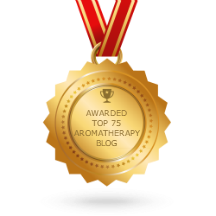We’ve had two crazy experiences with Lemon Eucalyptus (eucalyptus
citriodora), involving bees. Yes, it is an oil the CDC (Centers for Disease
Control) recommends as an insect repellant for mosquitoes. We’ve found Lemon
Teatree (leptospermum petersonii), to be much MORE effective, by the
way…we do have a tiny amount of the Euc. Cit. in our Skeeter Beater products,
but the main component is the Lemon Teatree.
Last summer I sprayed around my front door on the porch
with Lemon Eucalyptus, distilled water, and a tiny bit of alcohol from a
spritzer to keep mosquitoes and flies away. This was on a Saturday morning. I
was inside for maybe 4 hours and when I opened my front door I was surprised to
see it filled with numerous wood bees, which had gotten in between the screen
door and my front door. I closed it quickly, went out the back and got the hose
to get rid of them. A few still hung around, so the next day I literally mopped
with soapy water and wiped down the areas where I had sprayed previously. The
bees finally went away. I talked to Marge about it and there was no other
reason for the bees to suddenly appear and swarm other than the Lemon Eucalyptus
which surprised us! Note to self: Never ever spray Euc. Cit. on the porch
again.
Fast forward to last weekend. I filled an aromastone in my
laundry room with Lemon Eucalyptus and shut the door so it could diffuse and aid
with dampness, etc. On Sunday morning I opened the door and found…yes, a honey
bee! It was only one but why was he in my house? My only explanation is once
again the Lemon Eucalyptus. I’ve never seen a bee in my laundry room in sixteen
years.
So I did some research and found that the Lemon Eucalyptus
tree in Australia is known for attracting bees. Interestingly, I’ve also now
read that some of the Cymbopogon oils (Lemongrass), which are reputed to
repel mosquitoes, are utilized to “lure” bees.
I am only sharing my personal experiences here regarding
Lemon Eucalyptus, but I would be cautious using it outside, particularly in the
Spring and Summer, and even more so if you are highly sensitive or reactive to
bee stings of any kind. It is wonderful for mildew and mold and should be
component for any blend of that type alongside Tea Tree.
The bee factor reminds me of a conversation Marge and I had
once a few years ago upon hearing about a company promoting Catnip as an insect
repellant. Since many of our clients who purchase Skeeter Beater take safari
adventures, we imagined lions and other big cats being drawn to the scent of
Catnip Essential Oil. (We do not offer it by the way, as we as its primary use
is as a mosquito repellant. We find our SkeeterBeater to be more effective.)
Can’t you hear the conversation from deep in the jungle? “I thought this stuff
repelled insects.” “Yes, but it attracts lions and cats.” “Oh, I think we have
a problem then.” (Loud Roar!)
As always, we are keeping safety at the forefront and
here’s hoping you have a safe and enjoyable summer, free of bees and other
“critters.”



3 comments:
I'm glad I read this, because I had the same issue with the Lemon Myrtle oil in the North Carolina area. I'll carry on diffusing during the winter months.
Thanks for the article, very helpful. :)
I just put it in an oil burner in my office and in 10 minutes had 10 bees all inside near the burner. All doped up too. Was fun to get them all outside!
As a beekeeper I have noticed that the queen bee in a honey bee colony smells very lemony to the human nose, that is why we use lemon grass to attract swarms in the spring time, the bees are attracted to lemon grass and similar scented products. It is apparently very attractive to them but it shouldn't make them aggressive, it usually has a very calming effect on them.
Post a Comment